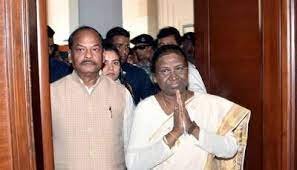New Governors Appointed for Odisha and Tripura
The President of India, in accordance with his constitutional authority, recently appointed new Governors for the states of Odisha and Tripura. This development has significant implications not only for the respective states but also for students preparing for various government exams, including those aiming for positions in teaching, police, banking, railways, defense, and civil services like PSCS to IAS. Let’s delve into the details and explore why this news is important, the historical context, and the key takeaways that candidates should be aware of.

Why this News is Important
Appointment of Governors: The appointment of Governors is a crucial aspect of the Indian federal structure. Governors serve as the representatives of the President in states and play a pivotal role in various state matters, including administration, law, and order.
State Politics: The choice of Governors can have political implications. It reflects the central government’s approach to maintain equilibrium and effective coordination between the states and the center. It can also influence state politics and governance.
Constitutional Relevance: Understanding the role and significance of Governors is essential for aspirants of civil services and other competitive exams, as questions related to their powers and functions often appear in these exams.
Historical Context
To understand the significance of the new Governor appointments, it’s crucial to consider the historical context. The role of Governors in India has evolved over time. Originally, Governors held extensive powers, but these have been curtailed over the years, aligning more with the principles of federalism.
The appointment of Governors has occasionally been a topic of political debate, with concerns raised about political interference. However, the President’s role in these appointments is constitutional, and Governors are expected to perform their duties impartially.
Key Takeaways from this News
| Serial Number | Key Takeaway |
|---|---|
| 1. | New Governors appointed for Odisha and Tripura. |
| 2. | Governors play a crucial role in state administration and coordination with the center. |
| 3. | The choice of Governors can have political implications. |
| 4. | Understanding the constitutional framework and powers of Governors is essential for competitive exams. |
| 5. | The role of Governors in India has evolved over time, and their appointments are made by the President. |
Important FAQs for Students from this News
Q: What is the role of a Governor in the Indian state structure?
A: The Governor in the Indian state structure is the constitutional head of a state. Their role includes the administration of the state, maintenance of law and order, and coordination with the central government.
Q: How are Governors appointed in India?
A: Governors are appointed by the President of India as per Article 155 of the Indian Constitution.
Q: What is the significance of the President appointing new Governors for states?
A: The President appointing new Governors is significant as it affects state politics, administration, and coordination between the states and the center.
Q: Are Governor appointments a matter of political debate in India?
A: Yes, Governor appointments have been a topic of political debate, with concerns about political interference. However, the appointments are made by the President, and Governors are expected to act impartially.
Q: How should aspirants preparing for competitive exams approach this news?
A: Aspirants should understand the constitutional framework, powers of Governors, and the significance of Governor appointments, as these topics are often part of competitive exam syllabi.
Some Important Current Affairs Links


